About Banyan Castle Rock
An essential part of the recovery journey is discovering new ways to experience joy, purpose, and fulfillment, so that sobriety doesn’t feel like a void where drugs and alcohol used to be. That’s where Banyan Castle Rock in Castle Rock, Colorado, can make a life-changing difference.
As part of the nationally recognized Banyan Treatment Centers network, our Colorado rehab offers trusted, compassionate care for both addiction and mental health disorders. Our beautiful, scenic location allows clients to take full advantage of the natural surroundings with outdoor recreation and meaningful, therapeutic outings that support healing.
At Banyan Castle Rock, we provide a peaceful, supportive environment where you can find the expert addiction and mental health treatment you need to regain control of your life. Our programs include:
-
Medical Detox: Supervised by a dedicated team that prioritizes your safety and comfort, with 24-hour medical care throughout the detox process.
-
Residential Treatment: A comprehensive, immersive experience that addresses both the physical and psychological aspects of addiction and mental health.
Our treatment approach combines evidence-based therapies, such as Cognitive Behavioral Therapy (CBT) and Medication-Assisted Treatment (MAT), with optional 12-step support and holistic therapies, including art therapy, equine therapy, and outdoor activities like hiking. Whether or not you choose to follow a 12-step path, our flexible programs can be tailored to your individual needs and preferences.
We also proudly offer a dedicated mental health program for individuals who may not have a substance use disorder but are seeking support for primary mental health conditions such as anxiety, depression, PTSD, and more. Our team provides targeted therapies and coping strategies to help you manage your mental health and achieve long-term stability.
What truly sets Banyan Castle Rock apart is our home-like atmosphere and thoughtful amenities. This isn’t a sterile hospital setting, our clients enjoy chef-prepared meals, comfortable living spaces, and a sense of community where lifelong connections are made.
At Banyan Castle Rock, you won’t just break free from addiction, you’ll build a life of wellness, balance, and purpose. Our compassionate team is here to help you create a future where you are no longer drawn to drugs or alcohol but are instead fully engaged in a healthy, fulfilling life.
Latest Reviews
See AllRehab Score
Gallery
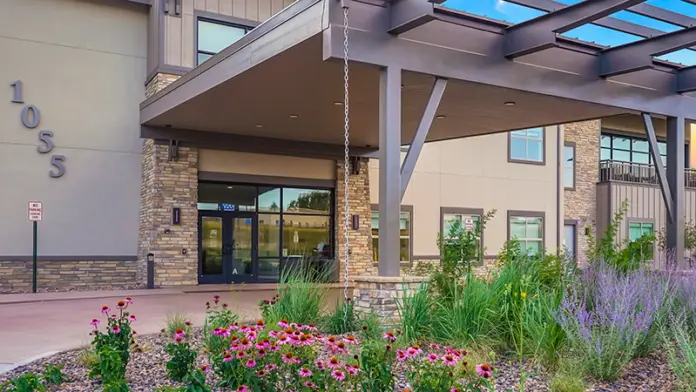
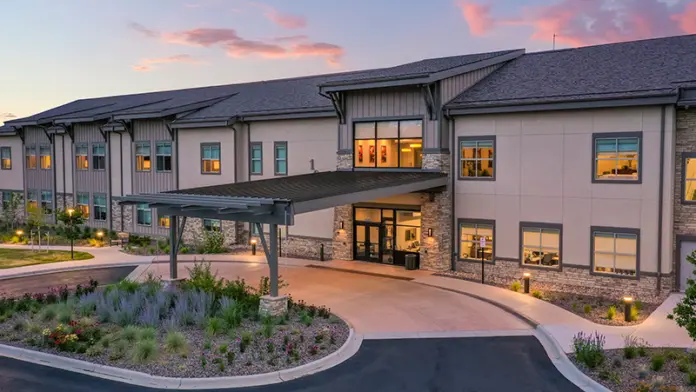
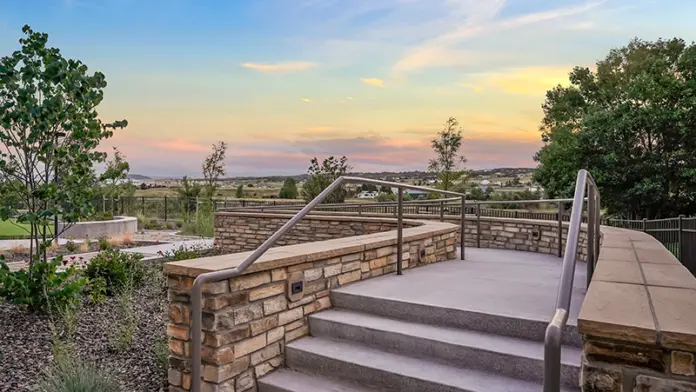
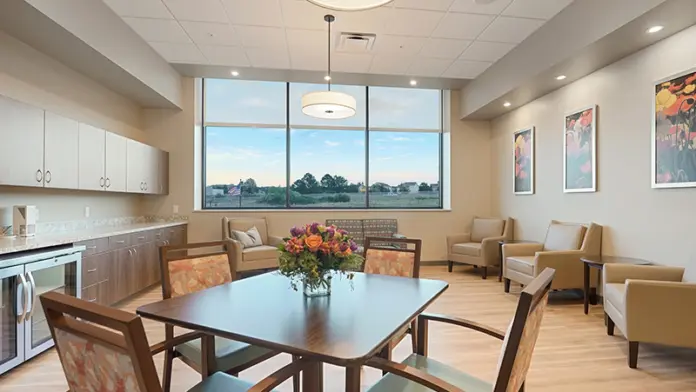
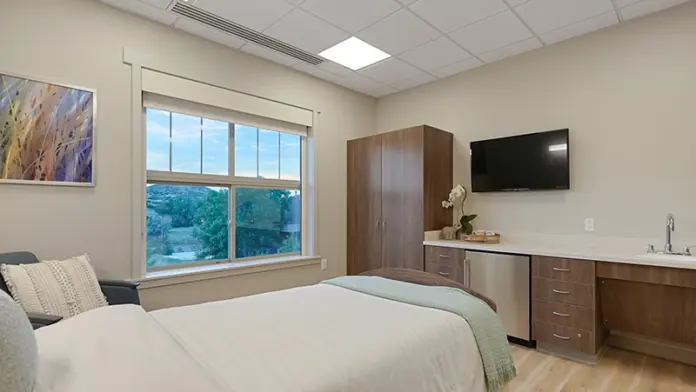
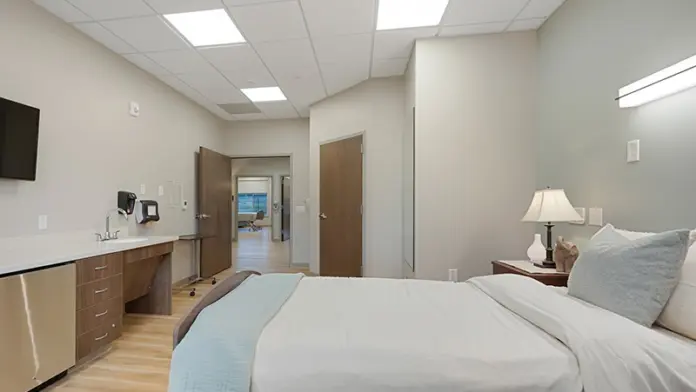
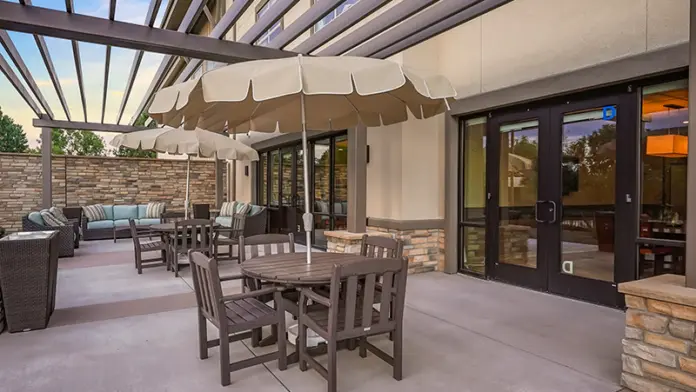
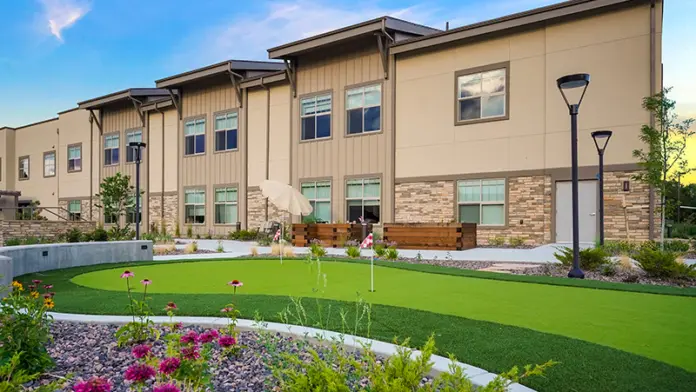
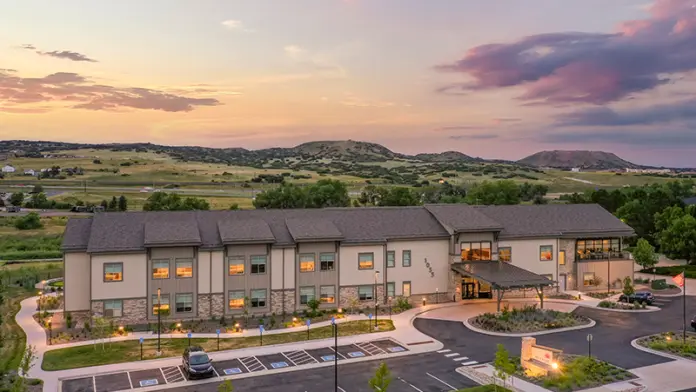
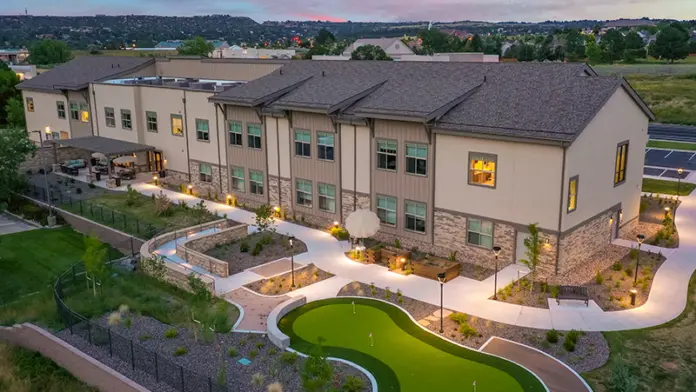
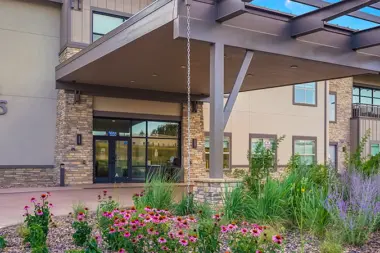
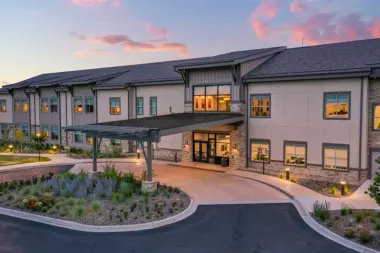

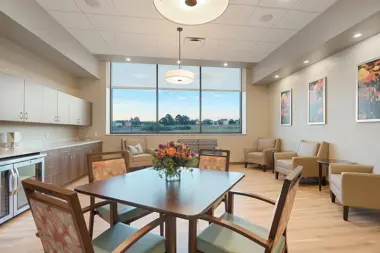
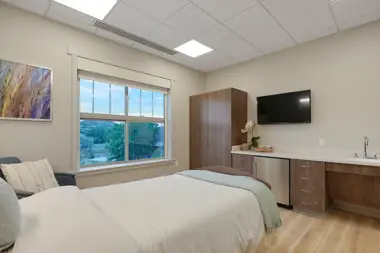
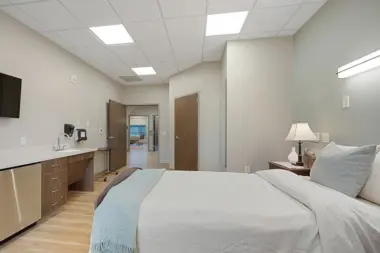
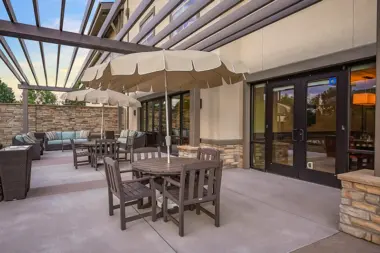
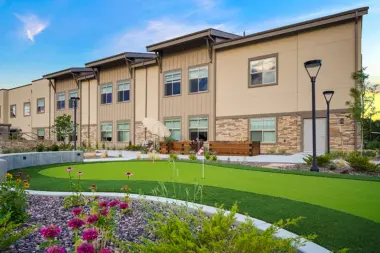
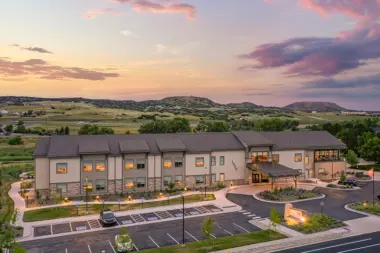
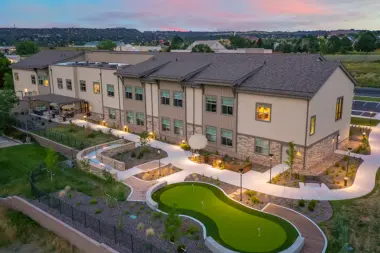
Accepted Insurance




Other Forms of Payment
Military members, veterans, and eligible dependents have access to specific insurance programs that help them get the care they need. TRICARE and VA insurance can help you access low cost or no cost addiction and mental health treatment. Programs that accept military insurance often have targeted treatment focused on the unique challenges military members, veterans, and their families face.
Financial aid can take many forms. Centers may have grants or scholarships available to clients who meet eligibility requirements. Programs that receive SAMHSA grants may have financial aid available for those who need treatment as well. Grants and scholarships can help you pai for treatment without having to repay.
Medicaid is a state based program that helps lower-income individuals and families pay for healthcare. Medicaid covers addiction treatment so those enrolled can use their coverage to pay for rehab. When a program accepts Medicaid the client often pays very little or nothing out of their own pocket.
Self-pay involves paying for treatment out of your own pocket. You can use savings or credit, get a personal loan, or receive help from family and friends to fund your treatment. If you don't have insurance or your insurance plan doesn't cover a specific program, self-pay can help ensure you still get the care you need.
Private insurance refers to any kind of healthcare coverage that isn't from the state or federal government. This includes individual and family plans offered by an employer or purchased from the Insurance Marketplace. Every plan will have different requirements and out of pocket costs so be sure to get the full details before you start treatment.
Addiction Treatments
Levels of Care
The inpatient rehab or residential rehab at Banyan Castle Rock is a premium environment for taking back the power over your life from drugs and alcohol. You’ll live in a healing and serene atmosphere with a community of others in recovery while you receive treatment every day that guides you toward a life of sustainable sobriety.
You’re probably familiar with 12 step addiction programs like AA and NA to some degree. Banyan Castle Rock takes a personalized approach to addiction treatment so they’ll create your treatment plan around what best suits you. This can include the 12 step philosophy if that method resonates with you. They encourage you to get involved in 12 step meetings outside the rehab during your program too.
Detox is the first step in your path to recovery and healing after addiction but you don’t have to do it alone. At this rehab they have a medically assisted detox program where the specialized medical staff will supervise your withdrawal process. They can use medications and medical interventions to keep you as comfortable as possible and make sure you’re safe throughout the process.
Banyan Castle Rock is on a mission to make addiction treatment accessible to as many people as possible and that includes people who can’t always come to therapy due to transportation issues or child care or other circumstances. In these cases they have telehealth treatment available so you can still get your treatment sessions and continue growing in your recovery.
Clients engaged in a rehab aftercare program have completed active addiction treatment and are receiving services designed to promote their sustained sobriety. Drug rehab aftercare typically encompasses a wide variety of medical, mental health, and social services meant to facilitate clients' reintegration into their home, workplace, and community. Clients typically collaborate with their case manager and/or recovery team to identify and access the services they need, often including peer coaching, career counseling, and care referrals.
Detox can be dangerous if not properly supervised, making 24-hour clinical care in Colorado an essential tool in the recovery process. The constant monitoring by medical professionals helps individuals through critical stages of recovery. Medical professionals and addiction specialists are available 24/7 to provide medications that ease withdrawal symptoms and to treat any other issues that arise.
Treatments
Anyone can get in over their head with drug addiction and Banyan Castle Rock is the safe place you can go to for help. Whether you struggle with opioid addiction like heroin or fentanyl addiction or your primary addiction is crack or cocaine or meth they know how to guide you through the recovery journey. The same is true for prescription medications like benzos and pain medication like oxycontin.
Substance use disorder is a disease that needs to be treated with clinical care and compassion like any other condition. This rehab specializes in helping clients from all walks of life to overcome their SUD. For drug addiction or alcohol addiction or if you are facing substance abuse with co occurring mental health conditions, Banyan Castle Rock is a path to recovery.
Mental health and substance abuse treatment in Colorado is usually offered in dual-diagnosis rehabs. These programs provide comprehensive care tailored to your specific needs, which may include detox, inpatient residential treatment, intensive outpatient, or partial hospitalization. Addiction and medical experts at these dual-diagnosis facilities usually provide a comprehensive mental health assessment, individual and group counseling, psychoeducation, and skill development groups. By prioritizing a holistic approach to your mental and emotional health, you'll also gain the confidence and tools to maintain your sobriety.
Colorado offers dual-diagnosis addiction treatment programs that encompass various levels of care to meet your individual needs, including medical detox, outpatient, inpatient, and partial hospitalization programs for individuals with co-occurring mental health and substance use disorders. These dual-diagnosis rehab programs incorporate evidence-based therapies such as cognitive-behavioral therapy (CBT) or dialectical behavior therapy (DBT) to successfully address substance use disorders and co-occurring diagnoses.
Alcoholism is defined as a physical dependence on alcohol. In this state, the body experiences withdrawal symptoms in the absence of alcohol. Over time, a person with alcohol use disorder also must drink greater amounts of alcohol to achieve the same effects. To overcome alcohol use disorder, alcohol rehab in Colorado is usually necessary, a process which includes supervised medical detox. This is followed by intensive rehab, then a maintenance program that may include 12-step support.
Programs
Substance use disorder is a disease that needs to be treated with clinical care and compassion like any other condition. This rehab specializes in helping clients from all walks of life to overcome their SUD. For drug addiction or alcohol addiction or if you are facing substance abuse with co occurring mental health conditions, Banyan Castle Rock is a path to recovery.
Banyan Castle Rock is known for personalized addiction treatment and part of this is their specialized program for military members and veterans. They recognize that your service adds complexity and challenges to your recovery journey and they have the expertise to treat your specific circumstances while you also develop a supportive community among other military members in recovery.
Clinical Services
Group therapy in Colorado offers you a platform to share your stories about drug addiction and co occurring mental health conditions. You'll receive encouragement and empathy from peers who understand your journey, fostering a sense of community and belonging.
Men and women in Colorado have access to customized individual therapy sessions for drug and alcohol addiction treatment. These sessions explore your life experiences and patterns of substance abuse. Your therapist helps you recognize harmful behaviors and thoughts that empower you to make positive changes for lasting recovery.
During family therapy sessions, family members in Colorado work with therapists to understand addiction as a disease that has affected the entire family. This approach fosters empathy and reduces blame on any one member. Promoting this collective effort helps to support the recovery process.
The main principle of cognitive behavioral therapy (CBT) in Colorado is that substance use disorders are based on faulty thinking and behavior patterns. The goal of this treatment is to help the individual learn better ways of coping with challenges, which will lead to changes in thinking and behavior.
Creative arts therapy can take place in individual or group sessions. It may include reading poetry, journaling, making videos, or scrapbooking. These expressive activities allow participants to tap into emotions and process challenges in ways other than talking about their problems.
Eye Movement Desensitization and Reprocessing (EMDR) therapy is a structured, evidence based approach to help you process traumatic memories. It uses bilateral stimulation that typically includes eye movement but can also include tapping or auditory tones. This helps reduce your emotional stress and transforms negative thinking and beliefs into positive ones.
Dialectical behavior therapy is skills based and present oriented. You’ll be asked to keep a diary of emotions and related behaviors and practice the skills you’ve been learning between sessions. The focus of skills development is on mindfulness, distress tolerance, emotion regulation, and interpersonal effectiveness.
During trauma therapy, you explore the impact that a traumatic event has had on your life. Your therapist can help you develop strategies to manage the emotional and physical symptoms while improving emotional regulation. This improves your overall quality of life.
Addiction therapy uses recreation to provide structured activities that replace substance use with positive experiences. For example, swimming, cooking classes, and hiking trips encourage social interaction and improve physical health and emotional stability. This helps you rebuild your life without relying on drugs or alcohol.
Life skills are traits you need to be successful during recovery, such as managing stress and interpersonal relationships. During rehab treatment in Colorado, you and your therapist will identify any skills that need to be developed and work on methods to strengthen them.
Therapists who employ motivational interview techniques seek to draw out the client's ideas about change and allow them to draw their own conclusions about the need for change. This method is often effective for clients who feel unsure about their ability to change or the need for change.
Amenities
-
Mountain Views
-
Art Activities
Staff & Accreditations
Staff

John Sory
CEO

Michael Evanoff
CEO

Bryan Gregory
COO

Dr. Darrin Mangiacarne
Chief Medical Officer
Accreditations

The Joint Commission, formerly known as JCAHO, is a nonprofit organization that accredits rehab organizations and programs. Founded in 1951, the Joint Commision's mission is to improve the quality of patient care and demonstrating the quality of patient care.
Joint Commission Accreditation: Yes

The Commission on Accreditation of Rehabilitation Facilities (CARF) is a non-profit organization that specifically accredits rehab organizations. Founded in 1966, CARF's, mission is to help service providers like rehab facilities maintain high standards of care.
CARF Accreditation: Yes

The National Association of Addiction Treatment Providers (NAATP) is a professional association that represents organizations in the field of addiction services. Founded in 1978, NAATP's mission is to advance addiction services and ensure that high-quality addiction treatment is available and accessible.
NAATP Member: Yes
